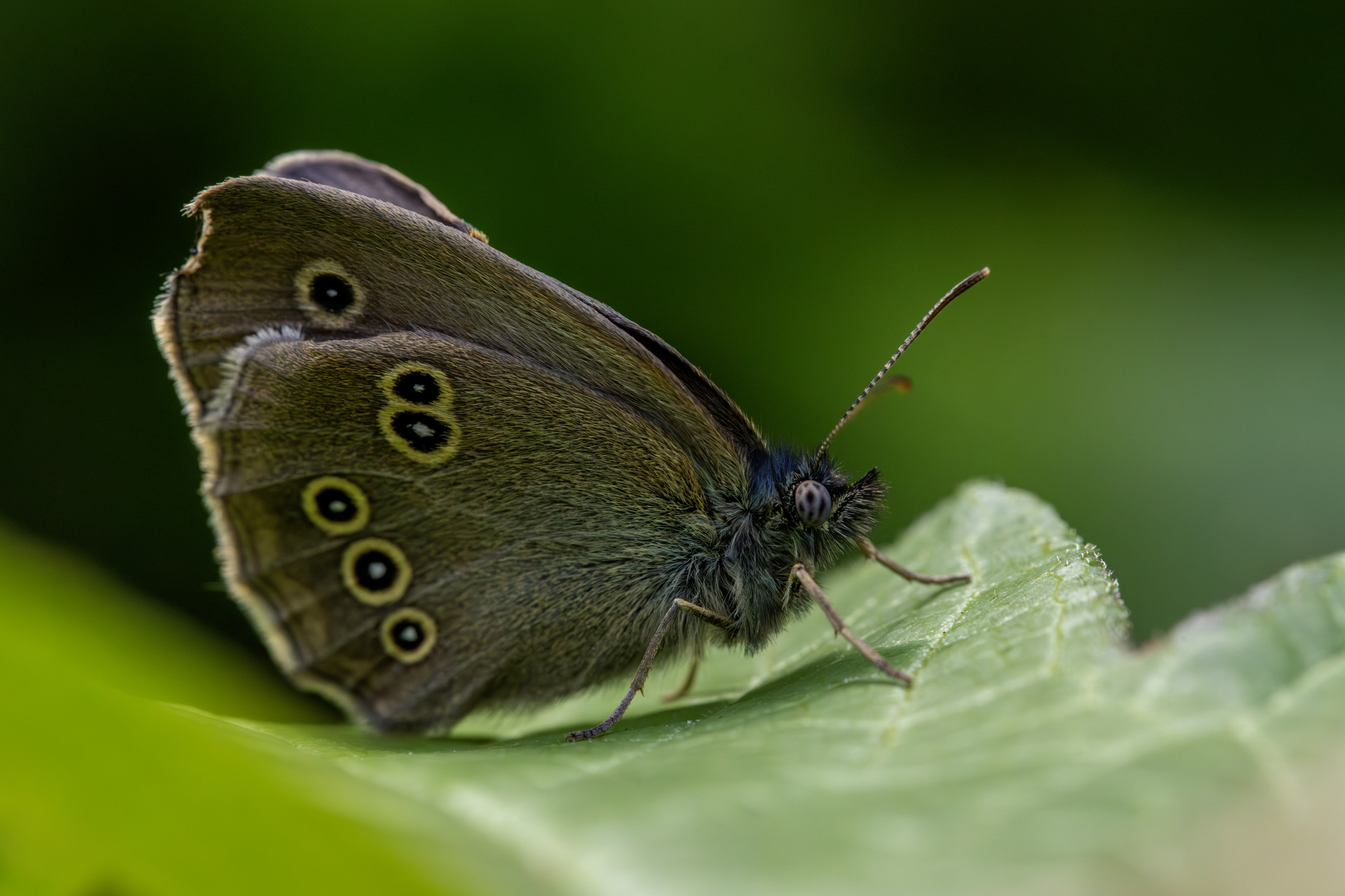Aphantopus hyperantus, commonly known as the Ringlet butterfly, is a species of butterfly belonging to the family Nymphalidae. Here’s more information about this butterfly species:
Appearance: The Ringlet butterfly has a wingspan of about 40 to 50 millimeters (1.6 to 2 inches). Its wings are dark brown with a velvety appearance, and they typically lack distinctive markings apart from a series of small, circular “eyespots” on the underside of the hindwings. These eyespots can vary in size and number depending on the individual and serve as a form of defense against predators.
Habitat: Ringlet butterflies are commonly found in grasslands, meadows, woodland edges, and other open habitats across Europe and parts of Asia. They prefer areas with tall grasses and plenty of vegetation where they can bask in sunlight and feed on nectar from flowers.
Lifecycle: Like most butterflies, Ringlets undergo complete metamorphosis, consisting of four life stages: egg, caterpillar (larva), pupa (chrysalis), and adult butterfly. The eggs are typically laid on grass blades or other vegetation, and the caterpillars feed on various grass species. The adult butterflies emerge in summer and can live for several weeks.
Behavior: Ringlet butterflies are relatively sedentary and tend to fly close to the ground, making short, fluttery flights between patches of vegetation. They are often seen basking in the sun with their wings spread open to absorb warmth. Despite their relatively plain appearance, Ringlet butterflies can be abundant in suitable habitats during the summer months.
Conservation: Ringlet butterflies are not considered globally threatened and are widespread throughout their range. However, like many butterfly species, they may face localized threats such as habitat loss, fragmentation, and pesticide use. Conservation efforts aimed at preserving and restoring grassland habitats can benefit Ringlet populations as well as other butterfly species.
The Ringlet butterfly is a charming and understated species that plays an important role in pollination and ecosystem functioning. Its subtle beauty and ecological significance make it a beloved sight for butterfly enthusiasts and nature lovers alike.
Views: 793
Subscribe to the newsletter:
